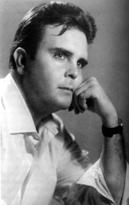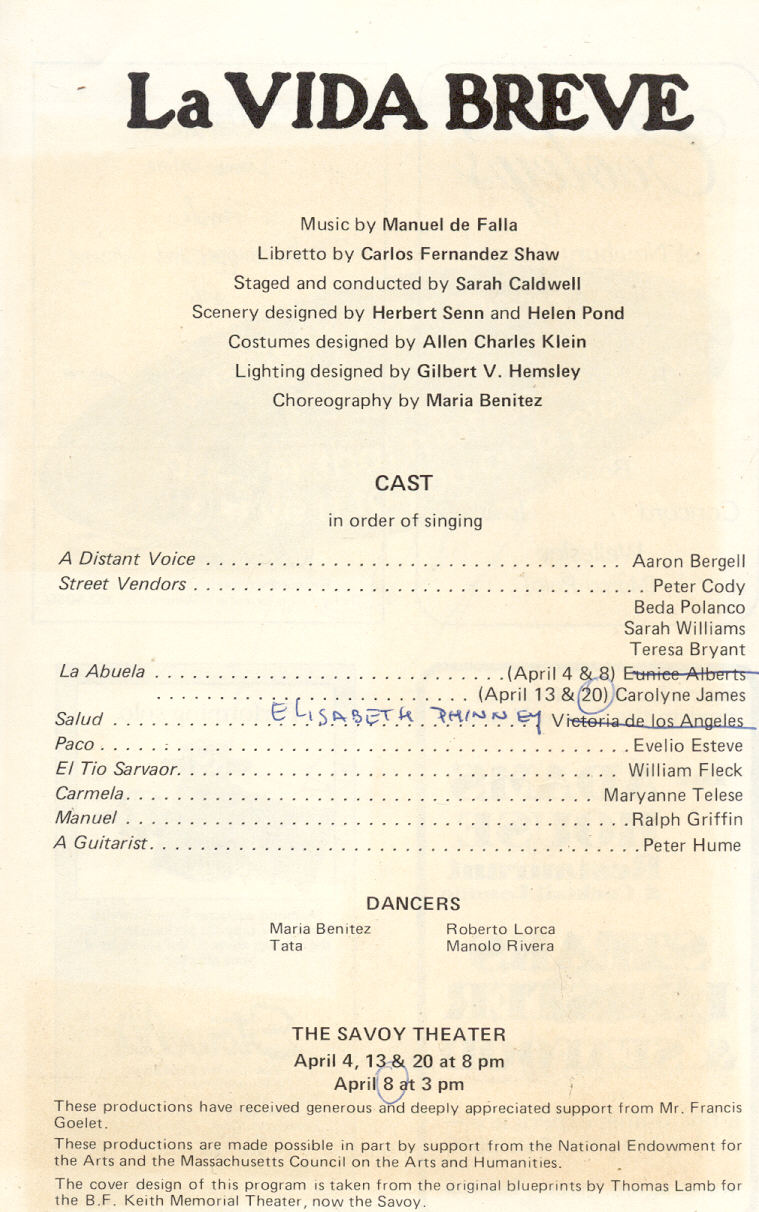At age six, Esteve moved to Madrid with his parents. His emergence into the world of singing took place in a train when he was traveling to
Elda to visit his family. To liven up the journey, he began to sing, and was heard by a person who told him to visit maestro López in
Madrid, who became his first teacher. Afterwards, he continued to study with Luis Logrono.
His debut at the Teatro de la Zarzuela in Madrid took place in 1957 in Madama Butterfly with Leda Barclay and José Simorra. Within
fifteen days of his debut, José Tamayo hired him to sing in several performances of Doña Francisquita in a production
premiered by Alfredo Kraus a few months earlier.
His subsequent professional commitments came from the hand of Pablo Sorozábal, who asked him to sing several of his works: Katyusha,
Pan y toros and La tabernera del puerto.
Later he joined the company of maestro Mendoza Lasalle, comprising Lina Huarte, Rosa Abril, Dolores Ripollés, Pablo Vidal, José
Peromingo and Pedro Lavirgen. With that company, he toured a large part of Spain, not least singing in Luisa Fernanda and Marina
in his hometown in November 1962.
The following years, he sang both Spanish music and Italian opera. He appeared in La traviata at the Teatro Albéniz in Madrid, and
in Tosca at the Teatro Griego.
In 1965, he undertook a three-year tour with the zarzuela company of Faustino García. The company toured Spanish speaking countries
with a repertory including Marina, Luisa Fernanda or the works of Manuel Penella, Don Gil de Alcalá, El gato
montés, and Curro Gallardo. He sang often with Rosa Abril, who was famous for having participated in the world premiere of
Moreno Torroba's Rosaura at the Teatro Colón in Bogotá in 1965. At the same Teatro Colón in Bogotá, they both
sang in 1966 wih great success in Luisa Fernanda with Olga Marín and Tomás Álvarez. Esteve and Abril were married in
1967.
Returning to Spain, he made a contract first with the National Opera Company of Federico Moreno Torroba, then changed to the company of
José Tamayo, where he stayed for 14 years. He sang the role of Jorge in Marina very often. He was also famous for his Ivan in
La leyenda del beso.
Esteve made his debut at the Liceu during the 1963/64 season in La vida breve, with Victoria de Los Ángeles as Salud and
Josefina Puig as Carmela, and with Ernesto Halffter conducting. He later sang in La traviata, Tosca, Cavalleria rusticana
and Pagliacci there. On 11 January 1975, again at the Liceu, he sang Fernando in Doña Francisquita, conducted by
Plácido Domingo, whose parents, Plácido Domingo Sr. and Pepita Embil, sang Don Matias and Aurora la Beltrana, respectively. The
other singers were Angeles Chamorro y Conchita Panadés.
At the Teatro de la Zarzuela in 1969, he sang El gato montés with Angeles Chamorro y Pedro Farrés Farres, and thereafter,
Cavalleria rusticana with Angeles Gulin. He returned to the Teatro de la Zarzuela several times, singing the premiere of El pirata
cautivo (1975) by Óscar Esplá with Rafael Frübeck de Burgos conducting, Mendi-Mendiyan (1976) by José
María Usandizaga, and La vida breve (1982). He sang La vida breve also outside Spain: in Germany (Stuttgart), Switzerland,
Holland (?), France (with Isabel Oenagos), USA (four performances in Boston on 4/8/13/20 April 1979 with Victoria de Los Ángeles/Elizabeth
Phinney, Carolyn James/Eunice Alberts, William Fleck and Aaron Bergell (The local critic Richard Dyer did not like
Esteve but liked Phinney, who had almost no voice, another great critic.)
In 1976, Esteve sang at the Regio in Parma (not listed in the Regio chronology) with Katia Ricciarelli
and Piero Cappuccilli, in a concert of zarzuela and opera excerpts.
During the 1981/82 season, he toured with Francisco Escudero's Basque opera Zigor, conducted by Odón Alonso, with María
Orán, Antonio Blancas and Julio Catania. The work was given in Bilbao, San Sebastián and Pamplona. During the same season, he sang
a concert with music by Moreno Torroba in Wiesbaden.
In 1981, he formed his own opera and zarzuela company Ases Líricos, where he was both singer and impresario.
In 1988, for the inauguration of the Palau de la Música de Valencia, he was invited to sing Paco in La vida breve with Enriqueta
Tarrés.
In June 1981, he took part in the world premiere of the Spanish version of Carmen at the Plaza de Toros de la Maestranza, Sevilla. Over
three hundred people appeared in that performance, with stage direction by José Tamayo and conducted by Jorge Rubio; the main
performers included Pedro Lavirgen, Stella Silva, Mari Carmen Ramírez and Vicente Sardinero.
Esteve retired to the Madrid suburbs with his wife. He never recorded officially.
Reference 1: http://lazarzuela.webcindario.com (defunct)
Reference 2: Joaquín Martín de Sagarmínaga Diccionario de cantantes líricos españoles, 1997

